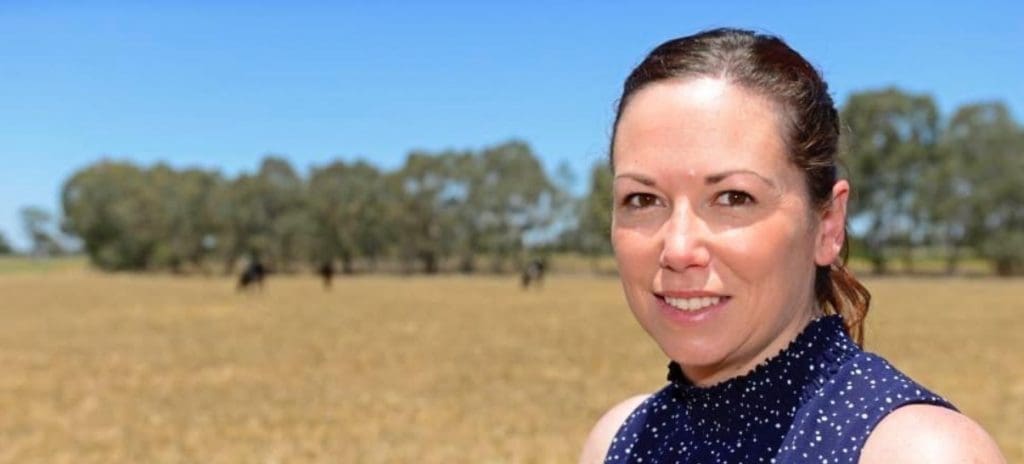
Victorian Minister for Agriculture Jaclyn Symes has released regulations mandating pain relief when mulesing sheep.
VICTORIAN sheep producers who surgically mules their animals without pain relief can now be fined more than $3300 under new regulations that came into force today.
Victoria today became the first state to in Australia to mandate pain relief for mulesing with Minister for Agriculture Jaclyn Symes announcing the new rules.
The new regulations stipulate that a person must not mules a sheep unless the sheep is administered with a pain relief product that has been registered for use on sheep by the Australian Pesticides and Veterinary Medicines Authority.
With a penalty unit set at $165.22 for the period from 1 July 2019 – 30 June 2020, the new regulations specify the penalty for mulesing a sheep without pain relief at 20 units or about $3304, with an infringement penalty of about $495.
The updated Prevention of Cruelty to Animals (POCTA) Regulations 2019 also cover a range of other practices and issues, including appropriate wool length on sheep, animal transportation and tethering requirements, use of electronic collars on dogs and cats, confinement of animals in vehicles on hot days, sale and use of appropriate fruit tree netting to protect wildlife, operational and administrative processes for rodeos and scientific procedure record-keeping and the sourcing of animals.
A penalty of $1650 (10 penalty units) is prescribed for any person who allows the fleece of a sheep to grow to a length greater than twice the average annual growth for the breed of sheep or more than 250mm, whichever is shorter.
Authorised officers who can undertake enforcement activities under the regulations include all Victoria Police officers, department officers authorised by the Minister for Agriculture who are Livestock Disease Control Act inspectors, RSPCA officers and authorised council officers.
Ms Symes said from banning dogs being left in cars when it’s over 28°C to pain relief when mulesing sheep, the regulations will make sure everyone living and working with animals knows how to keep them safe and free from pain.
“Whether they’re domestic or farmed, animals are important to so many Victorians – these updated regulations are a step forward in ensuring that our animals are being treated fairly and respectfully.”
Peak wool and sheep producer bodies support the changes
The updated regulations have also been welcomed by peak sheep producer and wool grower bodies.
Peak grower body WoolProducers Australia has a policy to mandate pain relief for mulesing nationally and WPA chief executive officer Jo Hall said this would position the Australian wool industry in a proactive position with consumers and the general public.
Ms Hall said WoolProducers was extremely concerned with the initial draft regulations’ definition of mulesing, defining it as “mules means to remove skin from one or both of the breech and tail of a sheep.”
However, the regulations released today have defined the practice according to the Australian Animal Welfare Standards and Guidelines for Sheep, ie. the removal of skin from the breech and/or tail of a sheep using mulesing shears.
Ms Hall said WoolProducers had supported the intent of the proposed amendment to mandate pain relief for mulesing as it aligned with WPA’s policy.
“However, we made it very clear that this support was contingent on the Victorian definition aligning with the animal welfare Standards and Guidelines definition.
“We are very pleased that the Victorian government listened and that we continue to have a nationally consistent definition.”
Sheep Producers Australia interim chief executive officer Stephen Crisp said the body also supports the national mandating of pain relief for mulesing.
“We would like to see mulesing in the long-term phased out, but in the interim we think that pain relief should always be used.”
Will New South Wales be next?
Mr Crisp said it would be up to each state and its regulations as to whether Victoria’s initiative was followed nationally. But he noted that NSW Farmers has also supported the mandating of local anaesthetic/analgesia during mulesing “through an industry-led initiative”.
NSW Legislative Council member and Animal Justice Party Mark Pearson has also presented a bill aimed at mandating pain relief for sheep surgical procedures, including mulesing, and potentially phasing out the practice.
Victorian Farmers Federation Livestock Group president Leonard Vallance said the VFF has had considerable input into the new regulations and farmers have had ample opportunity to give their feedback.
“The rest of the country catches up to Victoria eventually.”
“It is inevitable that it will happen.”
Ms Hall said WoolProducers is unclear if NSW will follow suit and implement mandatory pain relief for mulesing. But she said WoolProducers is strongly opposed to the Animal Justice Party’s bill aimed at banning mulesing and mandating pain relief for all sheep surgical procedures.
Click here to read the amended Victorian POCTA Regulations 2019.



A law that is almost impossible to police is as good as useless, especially in more remote regions.
Can someone please tell me why breed Merino sheep that need mulesing when they can be bred that they don’t need mulesing? Editor’s note: Doug, wool growers select their rams on various criteria, including year’s of experience with the type of sheep that suits their country, rainfall profile, operation, personal preference and production expectations or goals. They are often averse to changing their bloodlines for any of those reasons.
Sheep have evolved as farmers select sheep with desirable traits. The Merino of today — apart from its four legs and a head — bears little little resemblance to the sheep of 300 years ago. The evolutionary process has similarities to the process of knuckle-dragging apes becoming humans…
ASWGA’s public position is that there are “grower rights”. The Victorian government has just removed the ASWGA “grower rights”.
Ethics seem a foreign language for some.